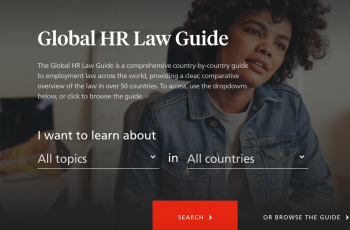
Over the last 12 months, many economies around the world emerged from Covid restrictions due to the success of vaccination programmes, improved treatments and the dominant Omicron variant proving to be less severe than earlier variants. However, the economic outlook has soured, and many economies are in dire straits with periods of low growth or, in some cases, recessions beginning to take hold.
In certain countries, the impact of the virus remains particularly damaging. China, for one, has pursued a virus suppression strategy which has delayed the re-opening the world’s second largest economy with knock-on effects for work around the world as well as for global trade.
Countries such as the UK have emerged from the high numbers of Covid hospital admissions and deaths, which peaked in early April 2020 and mid-January 2021. Infections began to rise as summer 2022 gave way to autumn, but there is no sign yet that this will translate into high cases of serious illness and by mid-November numbers looked to have peaked.
Most workplaces in countries such as the UK have removed all Covid restrictions. However, governments, employers and employees alike remain alert for further waves of infection, future sub-variants and variants (or indeed other pandemics) which might quickly impact on workplaces. Although it seems less likely to have major implications for employers, the world’s vulnerability to new pandemics is illustrated by the spread of monkeypox internationally.
During periods of high levels of Covid infections, significant numbers of employees felt ill but were not unwell enough to require treatment. In many cases, these employees were too unwell to attend work for a few days which led to staffing shortages in areas such as schools and the NHS. In cases where people were well enough to attend work, employers had to grapple with policies on attending work after testing positive and employee testing when experiencing Covid symptoms. Any winter wave of infections may well see absences from work rise significantly again with the consequential challenges for employers already faced with staff shortages.
The impact on the long-term health of many who have had Covid has become apparent over the last 12 months. As of 1 October 2022, 2.1 million people self-reported as having long Covid symptoms according to the Office of National Statistics. Long Covid sufferers are contributing to record numbers of the economically inactive adding to labour market shortages.
The symptoms of long Covid can be very debilitating. Employment Tribunal decisions are now emerging in which employees argue that long Covid amounts to a disability, protecting them from unlawful discrimination for reasons relating to their condition and requiring their employers to comply with their legal duty to make reasonable adjustments to their work.
As well as long Covid, evidence suggests that people who suffer badly from Covid infection are more at risk of certain mental health disorders.
The pace at which effective vaccines were developed pushed immunology and pharmacology into the spotlight. The additional resources and attention focused on this sector as a result of the pandemic promises to increase the pace of scientific advances, and job creation in this area, in the years ahead.
While organisations may have relaxed many of the Covid workplace safety requirements introduced during the height of the pandemic, Covid has elevated the issue of health and safety more generally in organisations and certain precautions, including more intensive cleaning and better ventilation, remain. Despite one in five employers planning to introduce a contentious “no jab no job” policy in May 2022, this issue has reduced in significance as the impact of Covid on the world of work declines.
Although employers are likely to be better prepared for any future Covid variant or other health threats than they were before the pandemic, challenges in dealing with Covid remain. With high levels of the virus persisting, employers continue to face demands from the extremely vulnerable, those with extremely vulnerable family members and the particularly cautious to take extra Covid security measures or to relax homeworking policies. For employers, continuing issues include introducing a policy for those testing positive for Covid but who consider themselves fit to work and managing the conflicting demands of the risk averse and vulnerable with those in the workforce who behave as if the virus is no longer a significant threat .
The “Great Resignation”, triggered by the pandemic, has had a significant impact on employers. A PwC report in May 2022 found that 18% of workers surveyed across 44 countries said that they were likely or very likely to switch jobs, with the numbers highest amongst Gen Z and Millennials. The Work Institute 2022 Retention Report looked at these trends in more detail in the US and found that “from 2020 to 2021, there was a steep increase in departures due to employees choosing a different career. Departing due to job security, promotion, and development also increased, but to a smaller extent”.
As the cost of living crisis has taken hold and financial pressures have begun to impact many, the “Great Resignation” looks to be shifting towards the “Great Return”.
For more information about employment law



